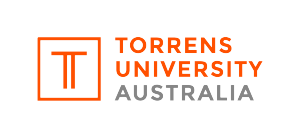The interest to study herbal medicine is steadily increasing, causing the field to expand. This opens up new job opportunities and new ways of healing specific ailments, or to alleviate side effects of treatments (such as conventional cancer treatment).2 There is a wide body of research into the effectiveness and safety of many herbs used in Western herbal medicine, and this research is ongoing. Studying and working within Western herbal medicine allows practitioners to work alongside conventional therapies, as well as broaden their knowledge of traditional Western herbs. Western herbal medicine can be used for many ailments and illnesses, including:
There are many job opportunities for those who want to study herbal medicine—the salary can range from $55,000 to $85,000 or more, depending on whether you are practicing, educating, marketing, or developing.3 Those employed in the Western herbalist education sector, for example, can make anywhere between $60,000 to $75,000 per year, and employment for this role is expected to grow strongly in the coming years.2
How to become a herbalist in Australia? First, you will need to complete a Bachelor of Health Science (Western Herbal Medicine). You can find a herbalist course provider using our search feature below.

a bachelor of health science in western herbal medicine offers a foundational knowled...
Course Provider : Torrens University Australia
Campuses :NSW QLD VIC
There are multiple fields to work in as a qualified Western herbalist. After you complete your Western herbal medicine degree and become qualified, you are likely to work in one of the following places:
As a team member in an established clinic, you would gain the benefit of working with more experienced practitioners and have the chance to learn more about complementary and multi-modality therapies. You would also gain first-hand knowledge on how to manage and run a clinic and team, as well as expand your skillset as a practicing herbalist.
Many who graduate from Western herbal medicine courses go on to open a private practice. As the owner and operator of a small business, you will be able to choose work hours and days, but will also be responsible for implementing marketing strategies, gaining malpractice and other insurance, and managing the day-to-day operations of the clinic. Once successful, you will have the opportunity to expand and hire more practitioners within the Western herbal medicine industry.
Working within a health retreat/day spa will give you the experience of seeing multiple patients, and expand your face-to-face customer service and interpersonal skills. You will also have the opportunity to continue advancing your learning in a different environment. You would gain a deeper understanding of how complementary therapies such as acupuncture or massage are important to incorporate alongside herbal remedies.
Those who graduate and gain a few years of experience can also go on to work in the education sector. These opportunities include lecturer or professor for those studying the Bachelor of Health Science (WHM) or a private tutor. You could complete post-graduate studies immediately, or work within the academic field of herbal medicine for a few years first. Research and academic work is an extremely important area for herbalist practice, as continuing to gain deeper knowledge about how herbs interact with each other, and different chemical compounds furthers the entire field.
Western herbal medicine is an expanding field, and more opportunities are being created to formulate tonics, tablets, and creams, among other treatments. All these new products need trials and testing, as well as research, in order to be deemed safe for consumers. Applying your skills in this area not only helps you to grow your own skill set and knowledge about herbs, but also benefits practitioners and consumers, to ensure the herbalist sector continues growing in a safe and ethical way.
If you have a business background and enjoy corporate roles, sales and marketing is a great way to put your knowledge of herbal remedies to good use. This is a rewarding field to work in, especially if you have great interpersonal and communication skills. You would be on top of all the latest developments and trials, and have the opportunity to continue to expand your knowledge on up-to-date techniques and practice.
To become a qualified herbal medicine practitioner in Australia, you will need to complete a Bachelor of Health Science.
Course duration: 3 years full time (trimesters), 6 years part-time
Study mode: Blend of self-learning, on-campus learning, supervised clinical practice and external clinical practice.
Entry requirements: Year 12 or equivalent
Units of study: